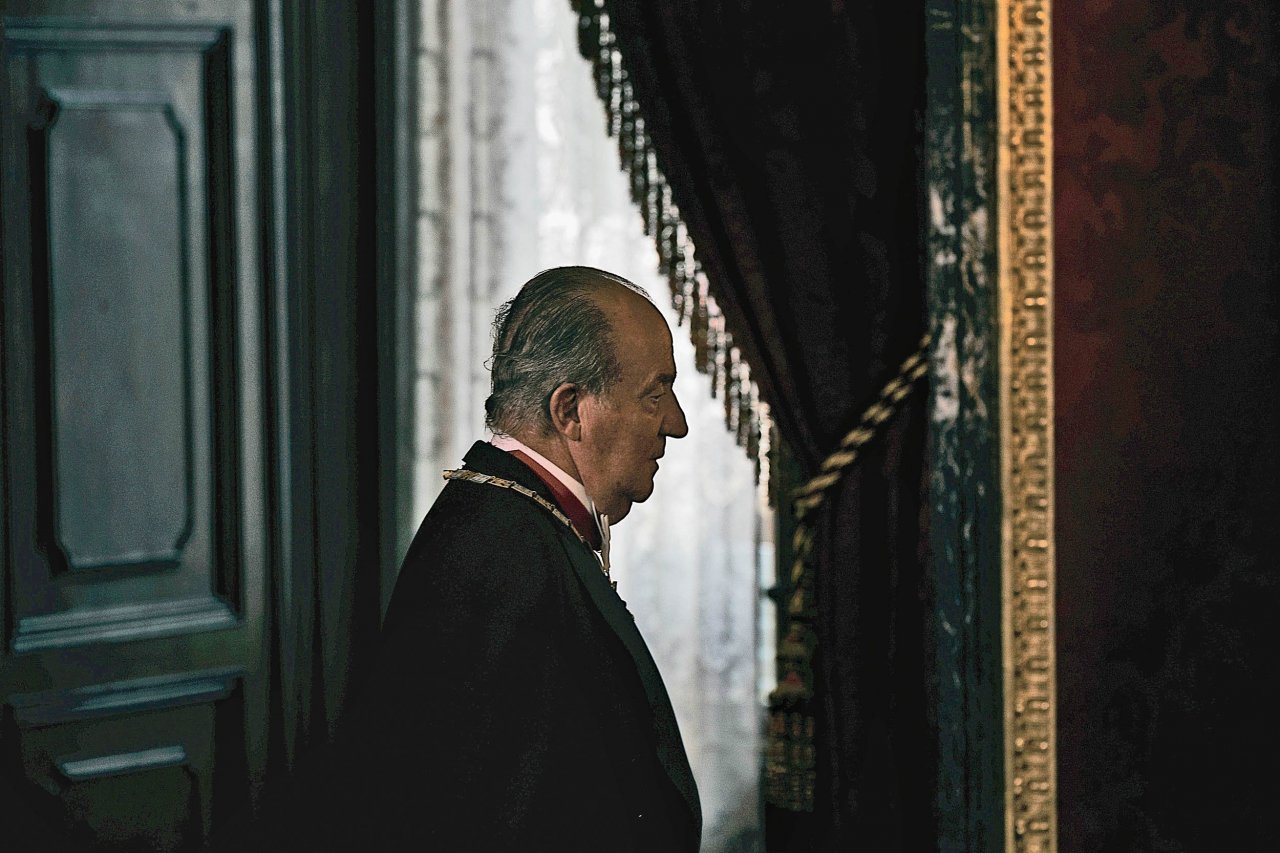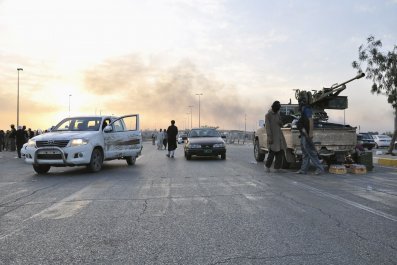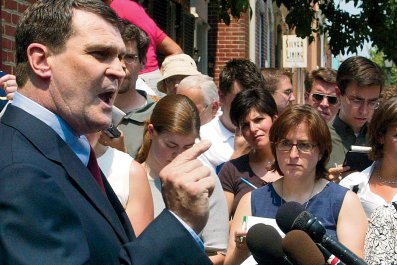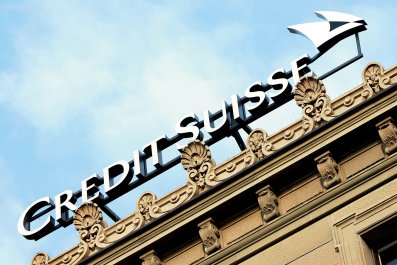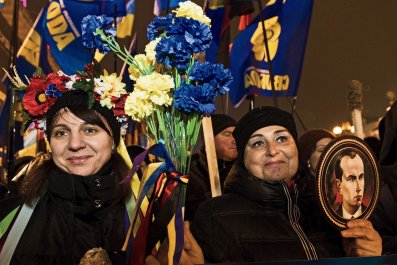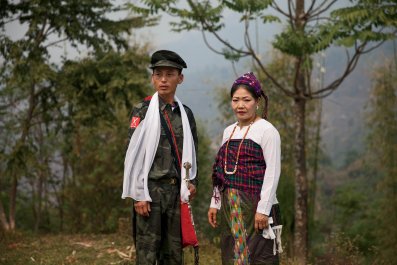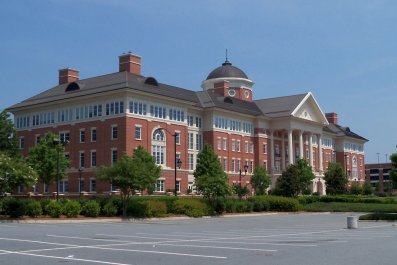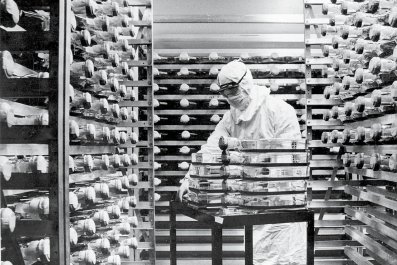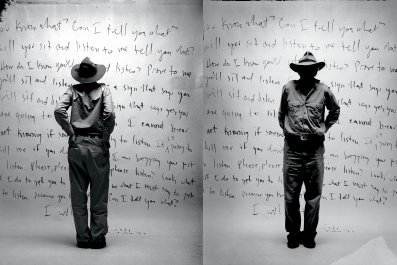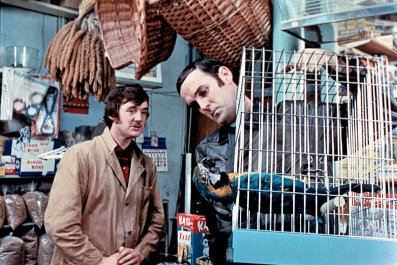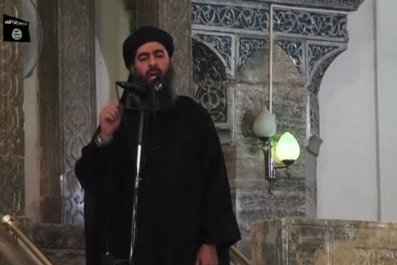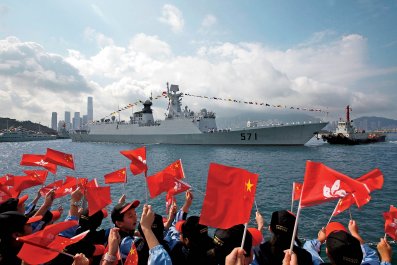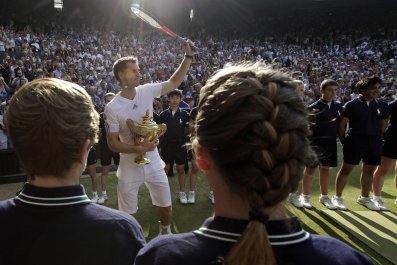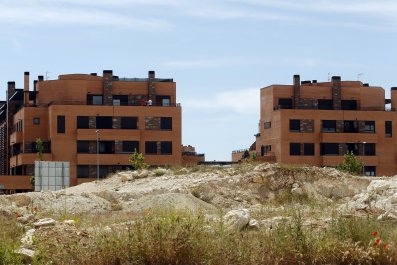How bright his future seemed as a young man. In 1964, when Constantine of Greece was 23, he succeeded his father as king and married a beautiful young Danish princess. Yet three years later, King Constantine II committed the blunder that was to cost him his throne.
In 1967, when the Greek colonels overthrew democracy, he agreed to swear them into office. As he put it later: "My whole aim was to avoid civil war. I tried to gain time by swearing in these people, so I could later overthrow them and restore the democratic process." The problem with this plan was that having surrendered his one opportunity to exert peaceful, moral pressure against the colonels, he proved quite unable to defeat them by military means. King Constantine's counter-coup was a flop and he was driven into exile. Very soon he found himself living in Hampstead Garden Suburb, in north-west London. His life had become an enforced holiday, a sort of privileged emptiness, where he was still addressed as king, despite having been chased out of his own country, which would not now allow him to return.
King Constantine had five children and set up a Greek school in London, which has since closed, for them to attend. He pursued his hobby of sailing: at the Rome Olympics, in 1960, Constantine became the first Greek since 1912 to win an Olympic gold, at sailing (Dragon class). He moved in grand and plutocratic circles. As an astute observer said: "Constantine's real role is to be an elegant, convenient and discreet go-between for moguls who want to meet monarchs."
Other monarchs have always treated him with respect, for he is tantalisingly well-connected. His wife's sister is Queen of Denmark, he is a good friend of Prince Charles (their grandfathers were brothers) and his sister is married to the recently-abdicated King Juan -Carlos of Spain.
London is rich in ex-monarchs, leading shadowy and in many cases rather melancholy lives. They find themselves living in limbo: almost nothing is recorded about their lives because almost nothing happens to them. They are reduced to waiting for something to happen.
They have lunch at the Goring hotel near Buckingham Palace, a favourite of the late Queen Mother. King Zog of Albania stayed at the Ritz hotel after being forced into exile by Mussolini in 1939. Crown Prince Alexander of Yugoslavia was born in 1945 at Claridge's, which was declared for the day to be Yugoslav territory. His godmother is Queen Elizabeth II. He now lives in the Royal Palace in the Dedinje district of Belgrade, and is in favour of recreating a constitutional monarchy in Serbia. When in London, Queen Beatrix of the Netherlands, who abdicated last year in favour of her son Prince Willem-Alexander, prefers to entertain in the private room at Le Colombier, a French restaurant in Chelsea.
During the summer season, it is hard to go anywhere at all fashionable in London without meeting dispossessed royals. They still have smart clothes, and like to attend the Chelsea Flower Show, the Queen's Birthday Parade, Ascot races and Wimbledon, where they sit discreetly at the back of the Royal Box. They may also be found sipping an iced coffee among the worthy guests at the queen's garden parties.
Queen Elizabeth II is a woman of strong family feeling. Here, as on all occasions, her sense of duty impels her to do the right thing. Each year, just before leaving London to spend Christmas at Sandringham, she holds a lunch at Buckingham Palace to which she invites every conceivable relation, including many from German royal houses. She is also good at keeping in touch by telephone, and at holding smaller lunch parties when the various members of her extended family are in London. But what almost all ex-kings want above all is to return to the land where once they reigned. One might imagine that in an age of democracy, this was an impossible dream.
Constantine's brother-in-law, King Juan Carlos of Spain, was born to a life of exile. His grandfather, King Alfonso XIII, had been driven out of Spain in 1931, and in 1939, the year after Juan Carlos's birth, General Franco established himself as head of state in Spain. With a military dictator in charge, there seemed no place for a hereditary monarch. But Franco needed a successor, and his choice fell on Juan Carlos who, in 1975, as soon as the dictator was dead, was crowned King of Spain.
Juan Carlos emerged as a champion, not of dictatorship, but of democracy. When an attempt was made to overthrow the new parliamentary system, he went on television and declared: "The Crown, symbol of the nation's permanence and unity, can tolerate no action or behaviour on the part of those who would forcibly put an end to the democratic process." The coup failed and the king's role as the guarantor of democracy was assured.
Recent history is surprisingly rich in monarchs who have managed, after decades in exile, to return home and play at least some role in national life. Mohammed Zahir Shah reigned for 40 years as King of Afghanistan before being overthrown in the pro-Russian coup of 1973. He lived for the next 29 years in exile in Italy, in a modest villa north of Rome, playing golf and chess, and tending his garden. In 2002 he was able to return to Afghanistan, where he was given the title "Father of the Nation", which lapsed with his death in 2007.
Michael I, King of Romania from 1927 (when he was six) to 1930, and again from 1940-47, was forced at gunpoint to abdicate. In exile, he earned his living as a commercial pilot, but in 1990 he was able to return to Romania, and he now divides his time between Romania and -Switzerland.
Tsar Simeon II of Bulgaria, who was born in 1937 and reigned from 1943-46 before being driven into exile, not only returned home in 1996, but managed to get himself elected prime minister in 2001, in which capacity he served until 2005.
As for King Constantine, last year he was at last able to return to live in Greece.



